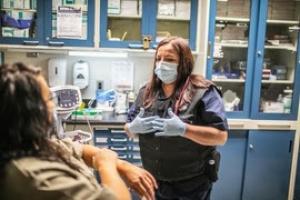
Accession Number
033110
This webinar is part of the National Institute of Corrections Clinical Pearls series. The series explores how to integrate clinical pharmacists into primary care. Session participants will learn how to identify best practices for carceral team medicine and clinical pearls in disease states affecting adults in custody.









